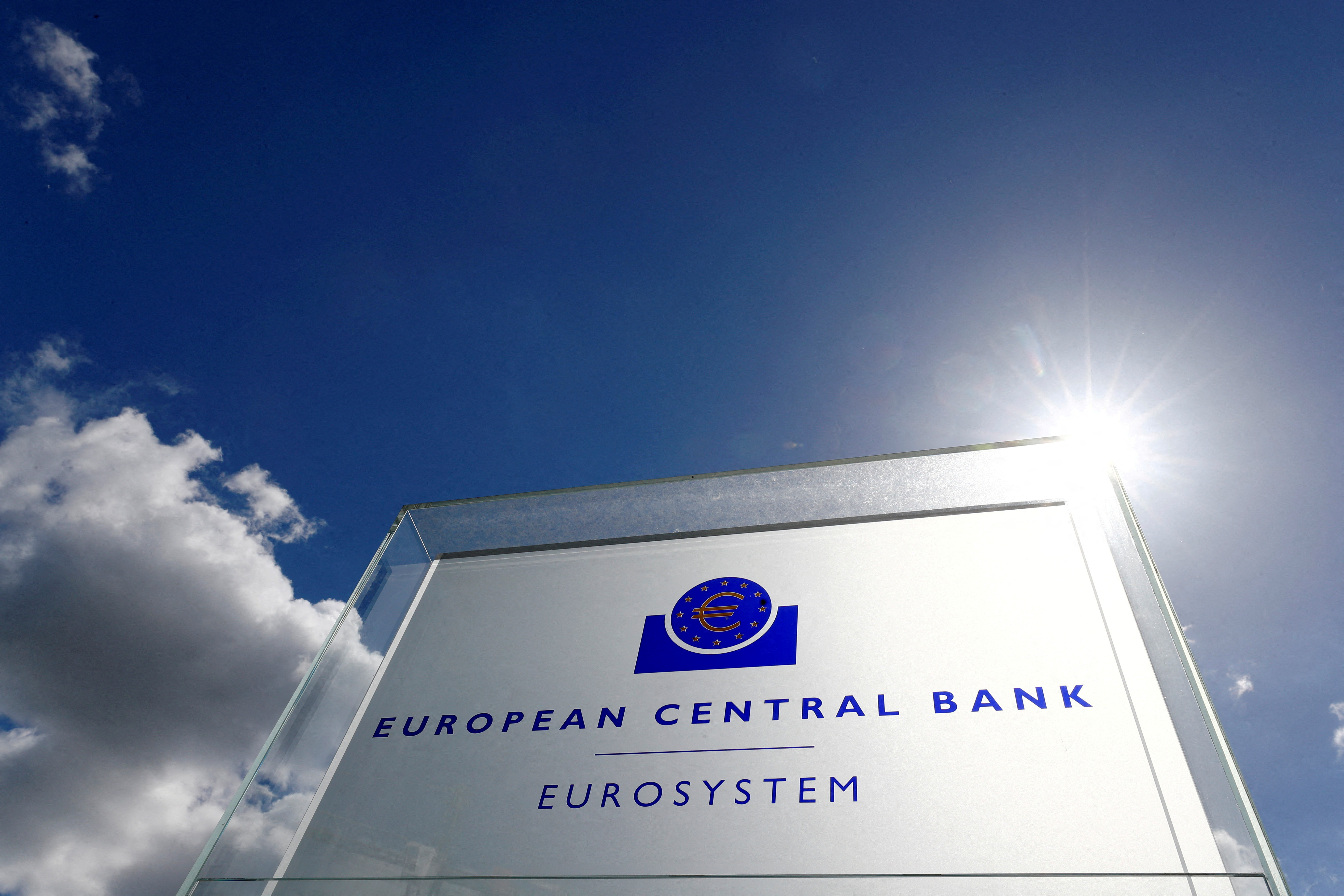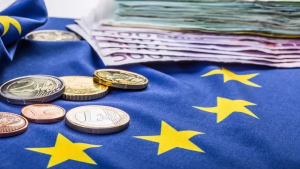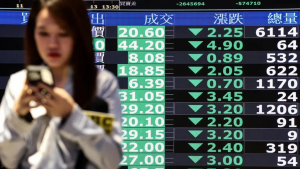The European Central Bank is on the back foot again and this time the bad news doesn't come from Greece, Italy or any of the usual suspects in the bloc's poorer south.
The club's biggest member and supposed powerhouse, Germany, has been hit by a toxic mix of weak trading with key partner China, a slump in its large manufacturing and construction sectors and even some existential questions about a business model predicated on cheap fuel from Russia.
Trouble in Germany is hobbling growth in the euro zone as a whole and threatening to push it into a recession, rather than the "soft landing" of moderate growth and inflation that the ECB had pencilled in and the United States is still hopeful of achieving.
This is forcing a change of tune at the ECB -- from ruling out a pause in its steepest and longest streak of interest rate hikes to openly talking about one as soon as next month.
And the market thinks the central bank may even have to undo some of those increases sooner rather than later, just like it did at the time of its last tightening cycle in 2011 when debt crises in Greece, Portugal, Ireland, Spain and Cyprus were accompanied by a broader recession. .
"There are some similarities between the 2011 circumstances and now," Richard Portes, a professor of economics at the London Business School, said. "There was a major supply shock and inflation was clearly going to be very short lived."
Unlike then, Germany rather than the south of Europe is at the epicentre of the problem, bringing many commentators to dust off the "sick man of Europe" moniker last used to refer to that country in the early years of the new century.
It's not without irony that the expression should have been coined by Emperor Nicholas I of Russia to describe the Ottoman Empire in the 19th century.
Some of Germany's present misfortunes also originate in Russia, on which Berlin had relied for a third of its energy supply until the invasion of Ukraine jeopardised those cheap imports.
Others run deeper and are home brewed, relating to its over-reliance on exports, lack of investment and shortage of labour.
"If the government does not take decisive action, Germany is likely to remain at the bottom of the growth table in the euro area," said Ralph Solveen, an economist at Commerzbank.












